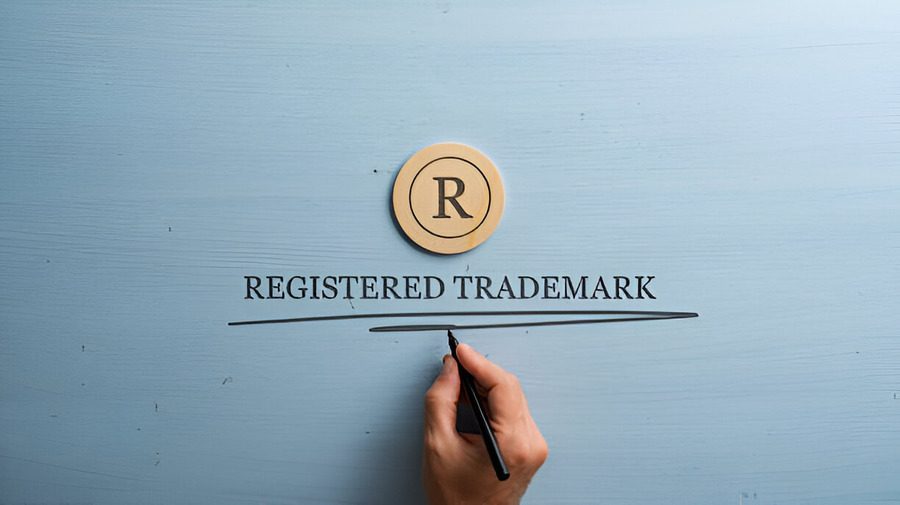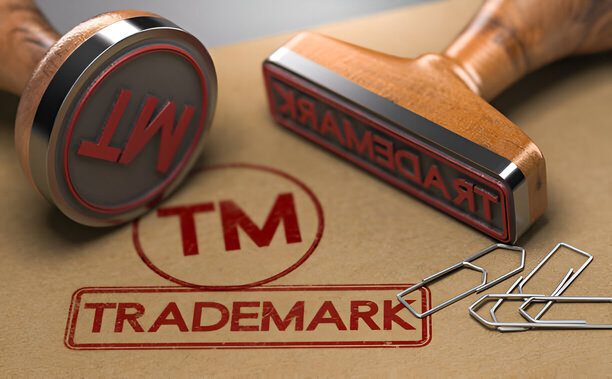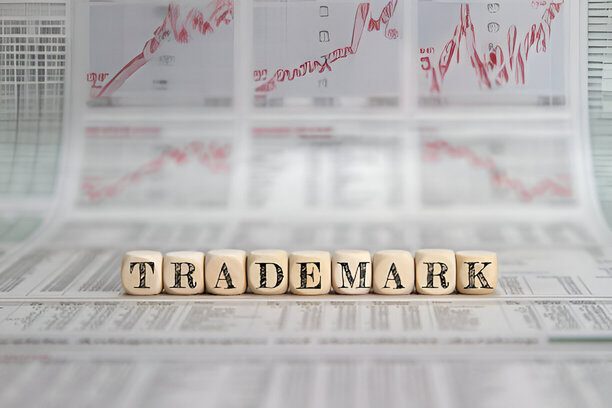What Are Trademarks?
A trademark is a distinctive mark or sign that distinguishes a person’s products from the products of others in the market. A trademark may be one or a combination of words, letters or numbers. They may consist of drawings, symbols, or other designs such as colour, combination of colours, shape of goods and their packaging. In some countries, non-traditional marks such as holograms, motion, and non-visible signs (sound, smell, or taste) may be registered.
Why Are Trademarks Protected?
Trademarks help businesses distinguish their goods and/or services, build brand identity and consumer trust. Trademarks ensure that consumers can identify the source of a product or service, which helps them make informed purchasing decisions. When a business develops and creates a brand, such brand acquires a reputation and goodwill overtime. These are intangible assets that can be transacted and contribute to the overall value of the business. Trademark protection encourages innovation and rewards trademark owners with recognition, financial profit, and exclusivity. Trademark protection also hinders the efforts of unfair competitors, such as counterfeiters, who use similar distinctive signs to market inferior or different products or services and profit off the existing market reach of a brand.

Where a trademark is registered at the Nigerian Trade Marks Registry (the “Registry”), the proprietor enjoys legal protection provided under the Trade Marks Act. Trademarks are territorial rights, and as such, their protection is obtained by national registration. This means that the Applicant must seek registration of its trademark in every territory where it desires to use it.
Overview of Trademark Registration in Nigeria
The primary legislation for trademark registration and protection is the Trade Marks Act (the “Act”). The major requirement for registration of a trademark is distinctiveness.[1] A trademark is distinctive if it is adapted in relation to the goods for which the trademark was registered, to distinguish the proprietor’s goods or services from those of other proprietors. A trademark may consist of at least one of the following:
- the name of a company, individual, or firm represented in a special or particular manner
- the signature of the Applicant for registration or some predecessor in his business
- an invented word or invented words
- a word or words having no direct reference to the character or quality of the goods and not being, according to its ordinary signification, a geographical name or a surname
- any other distinctive mark
Disallowed Registrations
The following cannot be registered as trademarks in Nigeria:
a. Deceptive or scandalous matters or designs or any matter that is likely to confuse or is disallowed by law.[2]
b. Names of chemical substances[3]
c. Identical or confusingly similar trademarks[4]
d. Geographical names in their ordinary signification[5]
It is important to note that the court or the Registrar may permit the registration, of trademarks that are identical or confusingly similar in respect of the same goods or description of goods, by more than one proprietor, in the case of honest concurrent use or other circumstances which the court or the Registrar may deem proper or permissible. However, such registration may be subject to certain conditions and limitations that the court or the Registrar may think right to impose.
Requirements for Trademark Registration
The following details are required for a trademark registration:
1. Applicant’s details (i.e., name, signature, nationality, and address)
2. A representation and details of the mark.
3. The classification of goods and/or services (Nigeria uses the Nice Classification of Goods and Services)[6]
4. A signed Power of Attorney authorizing an agent to register on behalf of the proprietor.
Procedure for Trademark Registration
Registration of a trademark in Nigeria occurs through the following stages:
1. Availability Search: The initial step is conducting an availability search at the Registry to confirm that no existing marks conflict with the proposed mark.
2. Application: Upon confirmation of no conflicts, an application is filed at the Registry. After submission of the application form and payment of the applicable fees, the Registrar issues an Acknowledgement Notice that includes a temporary application number and the official filing date.
3. Acceptance: Where the application is approved upon examination by Registry officials, the Registrar of Trademarks will issue an Acceptance Notice, usually between one (1) and two (2) months. However, a mark may be refused where it is considered a disallowed registration, in which case an applicant may make written representations to the Registry, who will then conduct a hearing before giving a written decision.
4. Publication: Upon accepting the application, the Registrar publishes the notice of the application in the Nigerian Trade Marks Journal to notify interested parties who may have objections to the application. The opposition period is two months from the date of publication
5. Registration: Where there is no objection or where an objection raised has been dismissed, the Applicant may apply for the issuance of a Certificate of Registration, and subsequently, a Certificate of Registration would be issued by the Registrar of Trademarks between three (3) to six (6) months after payment of the Sealing Fees.
Duration of Registration
In Nigeria, a trademark is registered for an initial period of seven (7) years from the filing date and can be subsequently renewed indefinitely, each time for a period of fourteen (14) years.[1]
Trademark Renewals
A trademark registration may be renewed by filing the prescribed form and payment of renewal fees at the Registry. An application for trademark renewal may be filed at any time not more than three months before the expiration of the registration. Late renewal of a trademark is permitted if the renewal fee, together with the penalty for late renewal, is paid within a month of publication by the Registrar of the notice of the expiration of the registration of the trademark.

Rights Conferred by Trademark Registration
The registration of a trademark (other than a certification trademark) in respect of any goods, confers on the proprietor of the registered trademark the exclusive right to use that trademark in relation to those goods. Accordingly, that right will be deemed to be infringed where any person (who is neither the proprietor nor a registered user of the registered trademark using it by way of the permitted use), uses an identical or a confusingly similar mark, in the course of trade, in relation to any goods in respect of which it is registered, and in such a manner that the identical or confusingly similar mark will likely be taken as either being used as a trademark or as importing a reference to some person having the right either as proprietor or as registered user to use the trademark or to goods with which such a person as aforesaid is connected in the course of trade.
Nigeria operates a first-to-file system. Thus, the person who first files an application with the Registry for the registration of a mark has priority over any other person using an identical or a confusingly similar mark in the same market. However, this priority may not be enforced to prevent the use by any person of an identical or confusingly similar trademark in relation to goods to which that person or his predecessor in title has continuously used such identical or a confusingly similar prior to the use of the registered trademark in relation to those goods by the proprietor or his predecessor in title. Also, such priority may not be enforced to object to the registration of such identical or confusingly similar trademark in respect of those goods in the case of honest concurrent use, or other similar special circumstances[1].
Also, registration confers on the proprietor of a registered trademark the right to institute proceedings at the relevant court of competent jurisdiction to prevent, or to recover damages for, the infringement of that trademark. The proprietor of an unregistered trademark may only enforce his rights in relation to that unregistered trademark, through a passing off action.
Non-Use of a Registered Trademark
Actual use of a mark is not required before it may be registered under Nigerian law. An intention to use is sufficient. However, a registered trademark may be taken off the register for non-use on either of the following grounds:
1. Lack of Bona Fide Intention to Use: If the trademark was registered without any genuine intention to use it in relation to the goods or services for which it was registered, and there has been no bona fide use of the trademark up to one month before the application for cancellation.
2. Continuous Non-Use: If the trademark has not been used for a continuous period of five years or more from the date of registration, it can be subject to cancellation.
* It is instructive to note however, that registered trademarks are hardly taken off the register for non-use without an order of a court of competent jurisdiction. This may be attributable to the disorganised state of the records at the Registry.
Defensive Registration of Invented Well-Known Trademarks
Where a trade mark consisting of an invented word or words has, with respect to any goods for which it was registered, become so well-known that its use in relation to other goods would be likely to be taken as indicating a connection with the proprietor of the well-known trademark, the proprietor may apply to register it as a defensive trademark in respect of those other goods, notwithstanding that the proprietor does not use or propose to use the trademark in respect of those goods. A registered defensive trademark is not susceptible to cancellation for non-use.
A defensive trademark allows proprietors of well-known marks to extend their protection beyond the specific classes or goods for which their trademark is traditionally registered. This protection aims to prevent others from using similar marks in unrelated goods or services that could cause confusion or dilute the distinctiveness of the well-known trademark.
A defensive trademark offers protection to the trademark owner by preventing third-party applicants from registering similar marks. It eliminates the need for lengthy trademark opposition proceedings and litigation that could arise from infringement, as the Registry will reject any infringing application based on the existence of the defensive trademark, even if it is not actively used in that class. Additionally, a defensive trademark helps preserve the distinctiveness of the mark and prevents individuals from exploiting the absence of registration for unrelated goods or services.
Mechanisms for Trademark Protection
Trademark owners may enforce their rights through the following ways:
1. Opposition to trademark registration: An owner of a trademark may, within two (2) months from the date of publication of a notice of application for trademark registration, oppose the application for the registration of such trademark on such grounds as the opponent shall disclose in the Notice of Opposition, including where it is similar or identical to an existing mark in respect of the same goods or description of goods, or that so nearly resembles such a trademark as to be likely to deceive or cause confusion.[2]
2. Infringement action: A registered trademark is deemed to be infringed by any person who, not being the proprietor of the trademark or registered user, uses a trademark that is identical to or closely resembling it as to be likely to deceive or cause confusion in relation to any goods in respect of which it is registered.[3] A proprietor may request that an infringing party stop further infringement through a cease-and-desist notice to the infringing party before the commencement of a court action.
3. Cancellation: A proprietor may make an application supported by evidence of prior registration of the mark to the Registry, requesting that the Trademark Registrar cancel an infringing mark.[1]
4. Action for passing off: Under common law, the owner of an unregistered trademark may bring an action for passing off where there is close similarity between the other mark and its associated goods and/or services to the prior mark and its associated goods and/or services; or the use of the other mark creates a likelihood of confusion, in the course of trade, with the prior mark among the relevant consumers.
Remedies for Trademark Infringement
In the event of a trademark infringement, a proprietor may seek the following remedies:
- Injunction: A proprietor may seek injunctive relief, either during the pendency of a suit or as a final order, restraining another party from infringing his trademark. An applicant must provide sufficient facts proving his prior registration and the acts of infringement to enable the court to grant this relief.
- Anton Piller Order: This is a court order allowing an applicant to enter the infringing party's premises to search, inspect, and seize any infringing product to prevent the destruction of incriminating evidence. This order is discretionary, and the proprietor must satisfy specific requirements before the court can exercise its discretion in its favor.
- Damages: A trademark proprietor may seek damages or compensation for the loss suffered due to the infringement.
- Accounts for Profits: The proprietor may require an infringing party to give an account for profits derived from the infringement, to enable the proprietor to recoup such profits from the infringing party.
- Delivery Up: The court may order the infringing party to deliver all infringing articles and items to the proprietor for destruction. However, this order can only be made with respect to articles in the possession of the infringing party rather than in the possession of third parties.
Jurisdiction over Trademark Matters
The Nigerian Constitution grants exclusive jurisdiction over trademark matters (whether registered or not) to the Federal High Court.[1] The Act also empowers the Registry to refuse registration, preside over
opposition proceedings and take certain other administrative actions with respect to proposed registrations.[1]
In line with the Companies and Allied Matters Act, the Registrar-General of the Corporate Affairs Commission may direct a registered company to change its name, for infringing a registered trademark which predates the registration of the company.
Invalidity of a Registered Trademark
The original registration of a trademark, after the expiration of seven years from the date of registration, is deemed to be valid in all respects, except where:
- the registration was obtained by fraud;
- the trademark is deceptive, scandalous, contrary to law or public morality; or
- the mark is disentitled to protection by a court of law.
Any person who establishes sufficient interest, to the satisfaction of the Registrar or the court, may commence cancellation proceedings.

Applicability of the TRIPS Agreement in Nigeria
The Agreement on Trade-Related Aspects of Intellectual Property Rights (“TRIPS”), is an international agreement that sets minimum standards for the protection and enforcement of Intellectual property (“IP”) rights among the member nations of the World Trade Organization (“WTO”). As a WTO member, Nigeria is obligated to comply with the provisions of the TRIPS Agreement and to align its national IP laws with its requirements.
Nigeria has been a signatory to TRIPS Agreement since January 1995. However, it is yet to domesticate the provisions of the TRIPS Agreement as required under the constitution.
DISCLAIMER: This article is only intended to provide general information on the subject matter and does not by itself create a client/attorney relationship between readers and our Law Firm or serve as legal advice. We are available to provide specialist legal advice on the readers’ specific circumstances when they arise.











